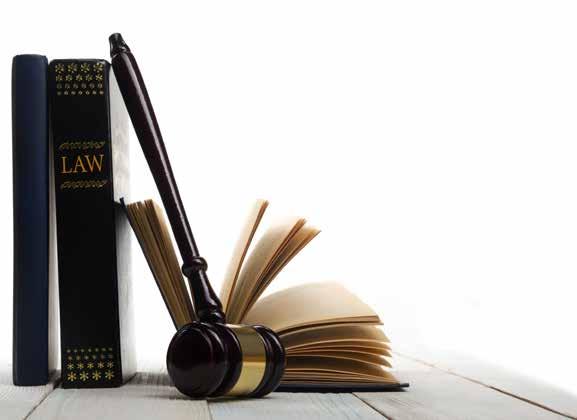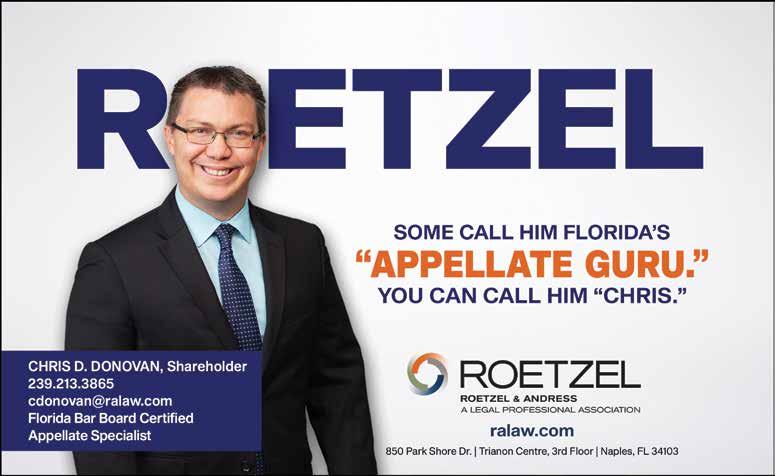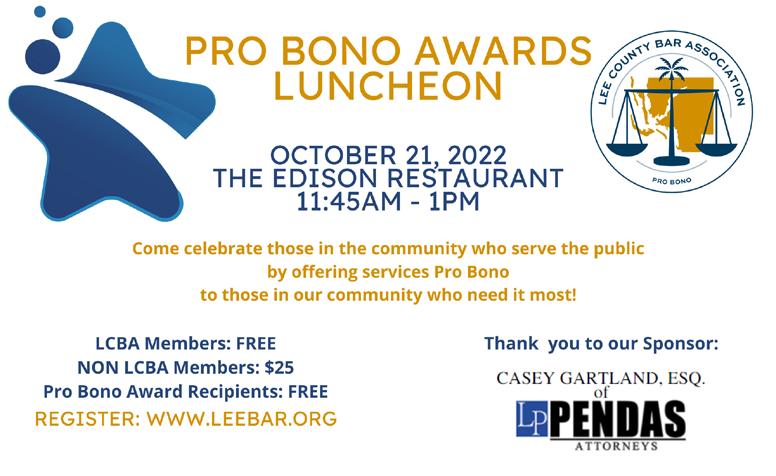
2 minute read
Ethically Speaking
More due process issues in lawyer regulation
by henry lee paul, esq.
Important due process concerns involving the rights of lawyers in disciplinary proceedings have recently been at issue before the Florida Supreme Court. These issues involve the extent to which a respondent lawyer must be informed of the allegations of misconduct and the extent to which the accused lawyer is afforded an opportunity to respond to the allegations. The Court did not address these recently briefed due process issues. The most recent due process issue was initiated by a letter from the Clerk of the Florida Supreme Court to The Florida Bar dated June 11, 2021. The Court expressed concern that a lawyer charged with a felony would remain eligible to practice until the conclusion of the criminal proceedings and stated that “without an appropriate rule modification, an attorney may remain eligible to practice law during the pendency of a felony case while the attorney may also be unwilling or unable to respond fully in disciplinary proceedings.” Accordingly, the Court requested, “The Florida Bar consider amending rule 3-5.2 to provide for a temporary suspension in those cases in which an attorney has been charged with a felony by an indictment or information in state or federal court.” Such an amendment would cause the immediate suspension of any lawyer charged with a felony, regardless of how serious the felony. A lawyer charged with a felony would have no ability to contest the suspension during the pendency of the criminal proceedings. In the amendment evaluation process, a substantial amount of opposition emerged to the requested amendment by certain members of the Board of Governors and the Executive Council of the Criminal Law Section of The Florida Bar. The Executive Council articulated numerous due process and constitutional concerns and in a letter to the Board of Governors stated it had “voted unanimously to oppose the proposed amendments denying a lawyer against whom a felony charge is ‘instituted’ even a modicum of due process.” The Executive Council further expressed concerns that the amendment requested by the Court would allow criminal prosecutors to usurp the function of lawyer regulation, which is delegated exclusively to the Florida Supreme Court. Additional concerns of harm to the clients of charged lawyers were also raised. Ultimately, the Board of Governors incorporated the proposal of the Executive Council and recommended the rule be amended to allow for the filing of a petition for emergency suspension, upon the filing of felony charges. This would allow The Florida Bar the discretion to file an emergency suspension based on the seriousness of the felony. It would also provide a charged lawyer the opportunity of a hearing before a referee to contest the allegations. This suggested amendment was filed in The Florida Bar’s Petition to Amend Rule Regulating The Florida Bar 3-5.2 (SC22-143). On June 2, 2022, the Court declined to adopt the proposed amendment without comment. Just as in the The Florida Bar v. Regan, SC20-1693, reported in my August 2022 article, the Court made no comment on the due process issues before it.
Henry Lee Paul, Esq. is a former Bar Counsel for the Florida Bar who now represents lawyers in all matters before The Florida Bar and offers risk management services on all legal practice matters. He also represents applicants in all matters before The Florida Board of Bar Examiners.










